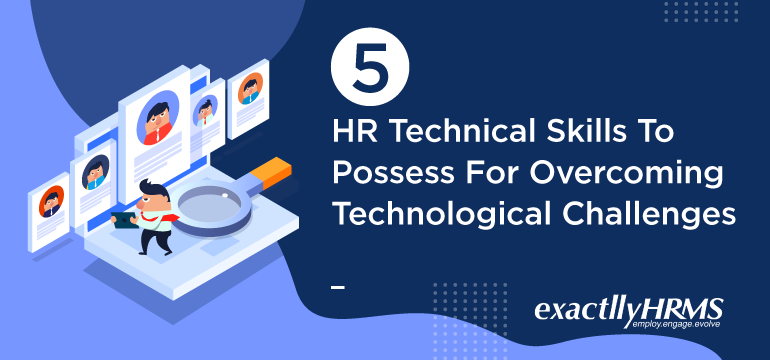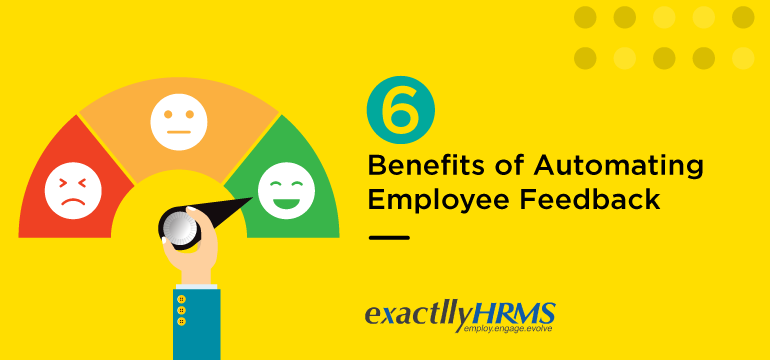Why You Must Go Easy on Electronic Surveillance of Your Employees

Electronic Surveillance of Your Employees
Most jobs today require employees to use a computer that is connected to the internet. Invariably, employees tend to surf the web at the cost of finishing up important tasks. HR departments are usually confused whether they must penalize their employees for surfing the web while at work or if they should look the other way and hope that they finish their work in time.
Obviously, HR managers cannot and must not look the other way when employees are not conducting themselves in a disciplined fashion. Moreover, certain employees may also use the internet for objectionable reasons, including visiting adult websites. Such behavior has to be met with disciplinary action.
The million dollar question however is, is it ethical to track and monitor employees using an amplified HRMS while they are at work? To an extent, it really is. We cannot avoid the fact that employees need to be disciplined and focused in order to be productive. If an employee spends way too much time no websites that are not related to work, he or she may waste valuable resources for nothing.
In this article, let us discuss the pros and cons of employee monitoring and why, if you must, go easy on electronic surveillance of your employees when they are at work.
The advantages of electronically monitoring your employees
- Security threats
One of the most important reasons why companies monitor or track their employees is to ensure that there are no security related threats. When we are talking about internet usage monitoring, major security related threats such as data theft can be avoided. For such activities, electronic surveillance must also seek the help of IT department. In fact, such an invasive monitoring is better left to the IT department than the HR department. - Maintaining discipline
Monitoring internet usage and online behavior of employees can ensure that they are doing what they are being paid for. Employees can often stray from their tasks and spend unnecessary time on social networking sites or browse aimlessly. That results in avoidable waste of resources. By monitoring employees’ internet usage and online behavior, employers can maintain discipline and ensure that work is finished in time. - Reduce unwanted data consumption
Using the internet costs money. No matter which corporate plan a company might be using to access the internet, at the end of the day, each byte that is downloaded has to be paid for. If employees are misusing internet for personal purposes and are not doing the work they are assigned to, it results in unnecessary data consumption which can prove to be expensive in the long term. Monitoring employees’ usage of internet ensures that unnecessary data consumption is avoided. - Track suspicious behavior
Monitoring employees’ behavior online, whether in terms of internet usage or social media activity, can reveal suspicious behavior. When HR managers come face to face with something that seems suspicious, it can be further investigated in order to avoid unpleasant and unnecessary situations. If employees make unsavory comments online, they can be reprimanded or told not to repeat the same behavior again. Moreover, internet behavior can give clues about suspicious and potentially harmful activities. Monitoring can help managers to nip threats in the bud. - Prohibit objectionable internet usage
Employees, when they are not monitored, may end up using adult websites and other content which is deemed objectionable by other employees. Violent and salacious content do not belong on the work floor and employees engaging in such browsing behavior should be disciplined. Monitoring helps employers to track employees who engage in such objectionable internet behavior. This helps to create a safe working environment for everyone.
Disadvantages of electronically monitoring your employees
- Lack of trust
When employees realize they are being monitored electronically, they begin to feel they are not being trusted. When employees feel they are not trusted by their bosses, they begin to feel demotivated and may begin to resent being at work. Such an attitude can cause negative performance and reduce productivity at work. At the end of the day, a happy employee will be able to work better than an employee who feels he or she is not worthy enough of being trusted.
- Creates resentment among employees
There are times when employees may begin to spy on each other, when they realize that internet behavior is being monitored. In order to win the favor of employers, certain employees may begin to behave in a manner that may be seen as being in collusion with authority figures, by other employees. Naturally, that causes resentment among employees and is detrimental to team building strategies. Companies should work at fostering trust and bonhomie among employees, and not help in brewing resentment.
- Reduces performance
It is a well known psychological fact that when a person feels monitored, he or she feels less motivated. It is a form of performance anxiety that also is shaded by the fear of being ‘found out’. If you choose to monitor your employees’ internet and computer usage, they may begin to feel that they should not be visiting certain websites even if they are required for work. Such hesitation can result in reduced performance and that is not what we want anyway.
- Sometimes unnecessary
People make mistakes and employees are no exception. If they visit websites that they should not be visiting and if they waste more time on surfing than on actual work, it is not difficult to recognize such errant behavior. One does not need an amplified and fortified HRMS to track such behaviors. It is usually going for the overkill, if we choose to alter our HRMS just to be able to track our employees’ online behavior. Instead, that effort can be used for something else.
- Misunderstandings
A lot of times, employees may surf longer than you might imagine they need to, to finish a task. You may not realize but it is possible that employees are genuinely using the internet to finish work. One must give them the benefit of doubt too. If we choose to use a customized HRMS to track every minute online behavior, it is going to get very difficult to work without creating misunderstandings.
So, should you go easy on surveillance and monitoring?
As far as human resource management is considered, you could probably check on employees once in a while to ensure that they are not visiting objectionable adult websites and that they are not browsing a majority of their work hours.
Other than that, constantly monitoring employees’ online and social networking behavior may cause a lot more misunderstanding than benefits. Instead, you could use your HRMS to reduce the time you spend on data crunching and analytics. The saved time can then be used to build positive and warm relationships with your employees.
Instead of looking at HRMS as a tool to monitor or engage in electronic surveillance, you can choose to look at it as a tool that helps you save time so that it can be used to get to know your employees better. For serious IT security related matters, the IT department must be able to take care of it.





